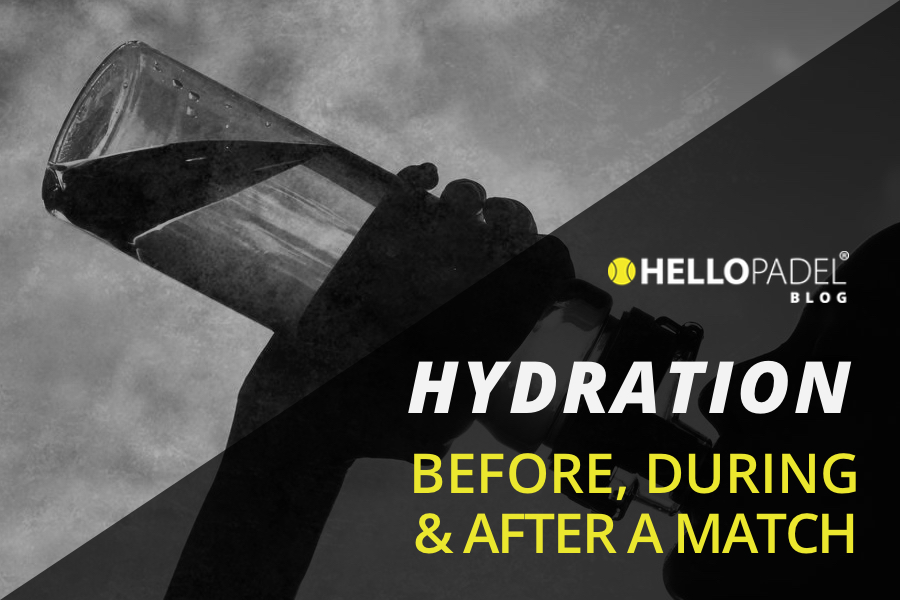1. INTRODUCTION – THE IMPORTANCE OF HYDRATION
Everyone knows (or so we hope) how important hydration is for the human body, and even more so if we do sport and it is very hot.
Water is the main chemical component in the human body and accounts for approximately 50% to 70% of our body weight. We can literally say that our body depends on water for survival. Every cell, tissue and organ in our body needs water to function properly and carry out its functions properly. Did you know that 75% of the brain is made up of water? And that blood is made up of 83% water?
And when we do sport, the way we lose most water is undoubtedly through our sweat. This is because sweating is the human body’s most efficient mechanism for cooling the skin and preventing a rise in body temperature through the evaporation of sweat.
So, in this article, we are going to talk about the importance of proper hydration when doing any physical activity or sport.
2. SO HOW MUCH WATER SHOULD YOU DRINK?
It is a simple question but one that has no easy answer.
Although the WHO and EFSA have stated that the approximate total water intake per day is 2 litres of water, this is, in many cases, incorrect, as the correct value is individual and will depend on many factors.
Thus, our individual water needs will depend on factors such as:
– Age
– Gender
– Level of health and fitness
– Where we live (temperature and humidity)
– How much physical activity or sport we do and its intensity
– The sports clothes we wear
– Etc.
Depending on these variables, the amount of water we should drink can be increased by two to six times. Take that!
The rate of sweat elimination during physical exercise can range from 1 litre to as much as 3 litres per hour, depending on intensity, age, gender, fitness level, temperature and humidity.
3. PRELIMINARY CONSIDERATIONS
- Of the 2 litres of water recommended generically per day, they recommend that 80% should come from direct water intake and the remaining 20% should come from fresh, seasonal foods.
- This total fluid intake should be taken at different intervals and times of the day so that you do not proactively feel thirsty at any time.
- Drink water in small, slow sips, avoiding large gulps in one go.
- Do not drink water that is too cold. The ideal temperature should be between 15 and 20 degrees Celsius, no more. If the water is colder, its absorption slows down.
- Sweating also leads to the elimination of chloride, sodium and potassium, as well as minerals such as iron and calcium, among others. So try to avoid weakly mineralised water during sport or physical activity.
- Do not try a new energy or isotonic drink that you have not consumed before or during an important match, as this may cause discomfort or even gastric problems.
- Overhydration is not good either, as sodium levels will be lowered by excess water in your body.
4. HYDRATION – BEFORE, DURING AND AFTER A MATCH
BEFORE PLAYING A MATCH
They recommend to drink between 400 and 600 ml of water (with mineral salts if possible) or an isotonic drink about two hours before exercise to start with optimal hydration levels. You should take a sip every 20 minutes until the start of the match.
Even if you are not thirsty, it is crucial to take in fluids for what is to follow. A good idea to incorporate this habit as a pre-match ritual.
It is advisable to not drink fizzy drinks. We do not recommend drinking coffee before competitions as it promotes dehydration.
DURING THE MATCH
If we have followed the above guidelines, our hydration at the start of the match will be optimal, but it will be essential to continue drinking liquids throughout the match as our body will lose water as we sweat.
We should take advantage of each change of side to drink sips of water, NOT VERY LARGE ones, in order to keep our body well hydrated.
A guideline on how much liquid to drink during a match or training session is between 100 and 200 ml of water every 15 to 20 minutes. And if the match or training is intense, it is also recommended to add an electrolyte supplement.
AFTER THE MATCH
After the end of exercise it is very important to rehydrate immediately. The main objective is to restore physiological, cardiovascular, muscular and metabolic functions to their optimal state as soon as possible.
Most experts agree that 150% of the body weight lost during physical activity in the form of liquid (water and/or isotonic drinks) should be ingested within 6 hours after exercise. In other words, if we have lost 1 kg after exercise, we should drink 1.5 litres. But as we will hardly ever be able to weigh ourselves before and after training or playing a match, we should drink consistently until we feel very comfortable.
It may also be a good idea, especially if the exercise has been very intense, to drink fast-absorbing carbohydrates (either in liquid or solid form), shakes or mineral-rich foods to help replenish lost electrolytes. Good examples would be melon, banana, blackberries, spinach or avocado.
And we should avoid drinks with a high sugar content, as these will cause a sudden drop in energy in the short term.
5. CONSEQUENCES AND SYMPTOMS OF DEHYDRATION
If during physical activity or sport we do not replenish the fluids we lose, our body will inexorably enter a state of dehydration.
Lack of hydration during sport will not only reduce our performance and increase fatigue, but in more severe cases, it can also lead to other more serious health problems, such as heat stroke, dizziness, headaches, vomiting, tachycardia or muscle cramps.
Does all this seem a bit exaggerated?
Then look up on the internet what happened to Fernando Beslateguín, then number 1 in the WPT Rankings, at the PPT Final in Ibiza in 2012. https://www.youtube.com/watch?v=UnSf2fpGQOE
As for the symptoms linked to a lack of hydration, we could highlight the following:
– The feeling of thirst. The problem with this is that not everyone appreciates it easily and that when this sensation or body warning appears, it means that we have already lost between 1 and 2% of our body fluid.
– Fatigue and physical exhaustion.
– Dark yellow urine.
– Dry mouth.
– Mental block or headache.
– increased body temperature
– dizziness and fainting
6. CONCLUSION
Being well hydrated on a daily basis is already important, but if we do sport or any other physical activity, then drinking water becomes a necessity that cannot be postponed if we do not want to suffer the consequences of dehydration.
We have also learned that it is not only important to drink during the match, but that it is equally important to hydrate before and after the match.
So, we hope (if you didn’t do it already) that, from now on, when you prepare your sports bag to go to play a match, you will add a 1.5 litre bottle of water and, why not also, some isotonic drink in case the match ends up being very intense and we go to 3 sets.
Don’t let poor hydration be the reason why you have lost a match or, worse still, suffer any of the consequences that dehydration can have.
 Upgrade now
Upgrade now







